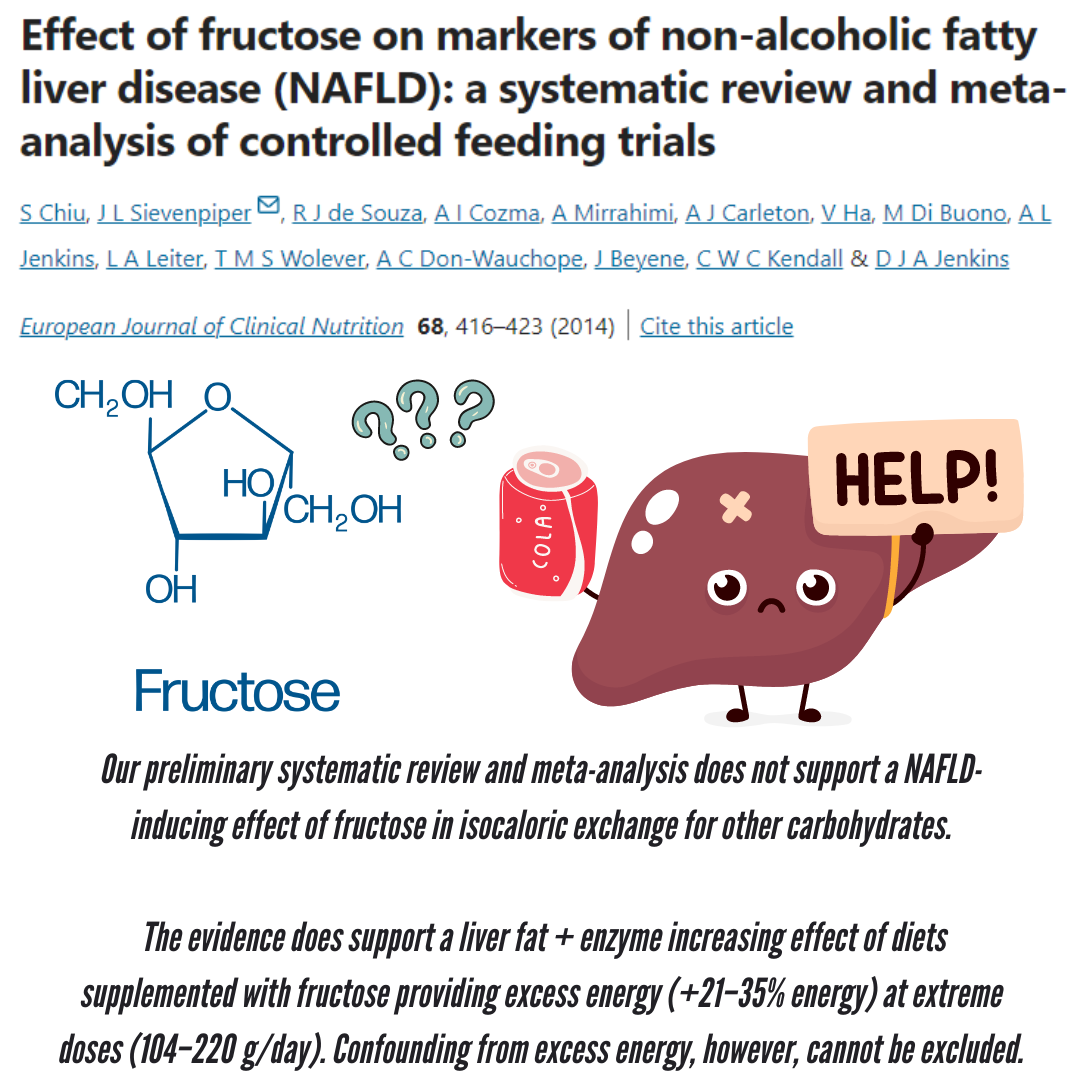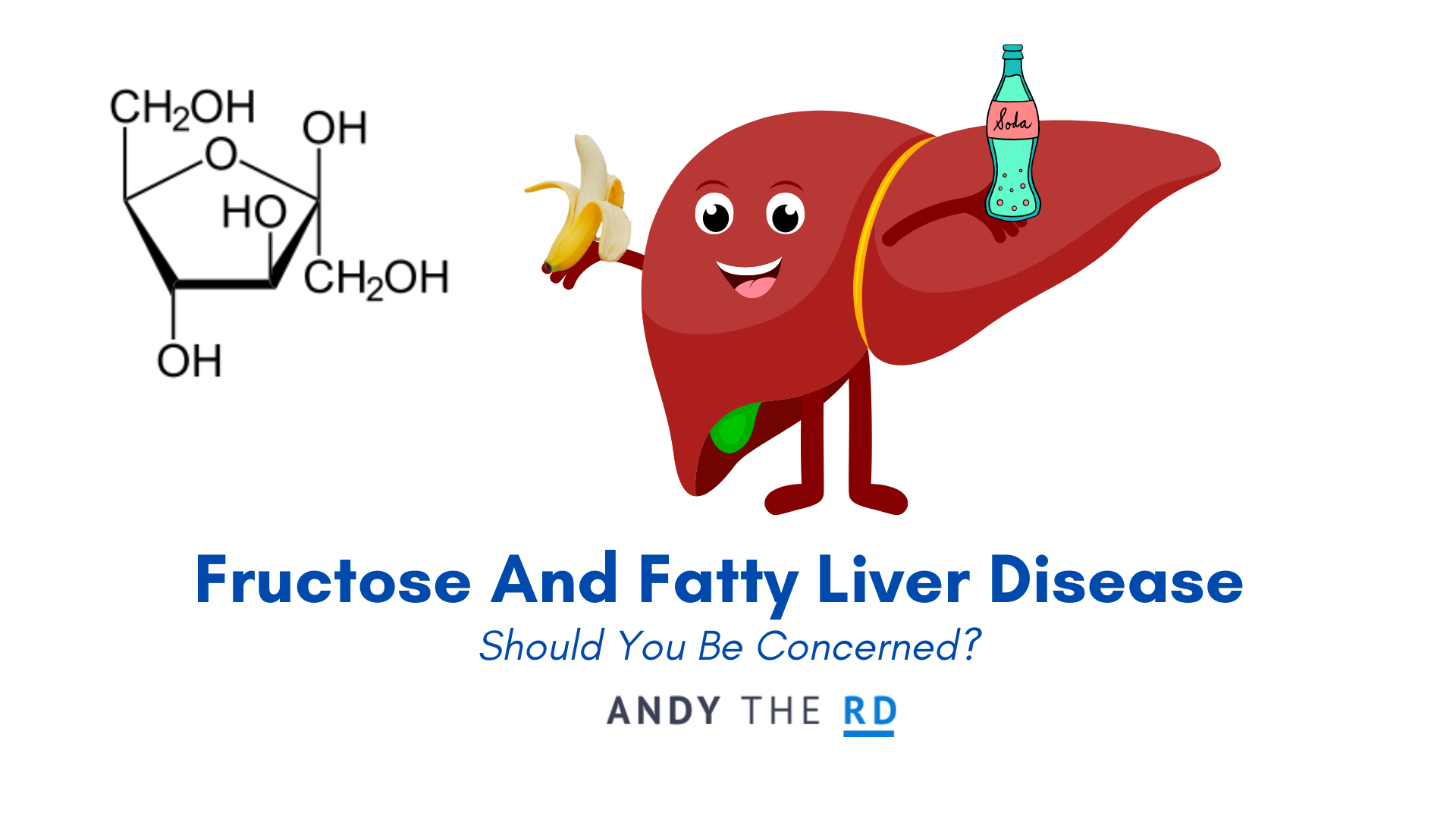If you’ve been at all interested in the connection between dietary intake and NAFLD risk or progression, it’s very likely that the topic of fructose has come up during the course of your research.
In fact, my recent foray into TikTok strongly demonstrated just how eager people are to singularly blame this molecule for so many health woes.
It is, of course, not that simple.
Intro To Fructose
Fructose is a naturally occurring sugar and is generally found in fruits and vegetables, but it also happens to be added to a wide array of foods often in the form of HFCS (high fructose corn syrup).
Additionally, fructose is a unique sugar from the physiological perspective because it is metabolized differently than other common sugars like glucose, with the liver playing a significant role in this process.
You can probably see where this is going now.
Fructose & Fatty Liver Disease
Fructose intake, primarily in the form of HFCS, has increased over the last several decades.
The rates of of NAFLD have also increased during this time period.
These parallel & correlated statistics do not, of course, offer any sort of meaningful insights by themselves.
The scientific community, however, has expressed some concern that higher fructose intakes may have a role to play in the problem in part owing to the liver’s previously stated role in fructose metabolism and the hypothesis that too much dietary fructose can lead to liver fat accumulation and inflammation.
Much of these rumblings stem from animal studies, so let’s not get too far ahead of ourselves here because fructose is not a straightforward topic.
Why do I say that?
Well, it happens to be found in rich supply both in some of the most nutrient dense foods and least nutrient dense foods as well.
Case in point, a 2019 observational study out of the Nutrients journal found that individuals with with NAFLD were statistically significantly higher consumers of Sugar Sweetened Beverages (SSBs– drinks that have sugars added to them, often in the form of HFCS – in this case mostly cola type products).
But there was no statistically significant correlation between the consumption of fruit and 100% fruit juice to NAFLD, perhaps explained by the high vitamin, mineral and antioxidant content of these foods.
Where Does Most Fructose Come From Then?
Nearly half of the fructose intake in the United States comes from sugar sweetened beverages like pop/ soda, sweetened fruit drinks (not 100% juice) , sweetened coffee/tea beverages and related products.
By contrast, fruit and 100% fruit juices account for under 15% of this total.
When looking at fructose intake in the context of metabolic syndrome (elevated blood sugars/blood fats, both risk factors and commodities for NAFLD), a 2020 systematic review and meta-analysis out of JAMA found that fruit and 100% fruit juice were protective against this condition at moderate, currently consumed doses.
Human evidence at this level of robustness relating fructose intake to NAFLD risk is not currently available but the point I’m making here is not to jump on the anti-fructose bandwagon to the point of thinking that the omission of fruit is going to be a net benefit to your health.
The same holds true for mildly sweetened otherwise nutritious products like yogurt, oatmeal and high fibre grain products like cereals.
As stated in this 2018 paper out of the Journal Of Hepatology, there exists only early clinical evidence to suggest that “[R]educing sugary beverages a may have a significant benefit on reducing hepatic fat accumulation.”
With that said, if you are living with NAFLD and looking to make dietary changes as a result it would not be unreasonable to reconsider the role these beverages currently play in your routine ( if they play any at all).
The same holds true for foods high in saturated fat, which is even more strongly linked with NAFLD as per the best available human evidence and as I discuss in another recent piece linked below.
Recently Diagnosed With NAFLD? I Can Help
Looking to utilize the power of nutrition to lower your liver fat, enzyme and inflammation levels while improving relevant biomarkers like A1C and triglycerides?
I can help, reach out today via email or phone [647-886-2197] to learn how working with me 1-on-1 can help you fight back against fatty liver disease.
Further Reading
The Best Foods For Fatty Liver Disease [NAFLD] – Andy The RD




